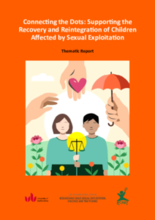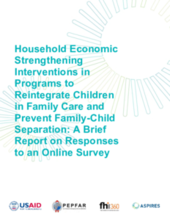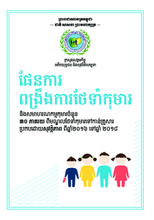Displaying 731 - 740 of 962
The Bridges Transitions Framework (Bridges, 2009) implemented in this study shows some promise in smoothing foster youth reactions to change. The framework was adapted to help older youth, foster parents, and social workers look beyond the concrete goals of independent living (e.g., housing, employment). It is process-oriented and attends to the psycho-social reactions and emotions that youth experience during times of significant change.
This report starts to collate evidence on what appears to be important to children who have experienced sexual exploitation.
This guide from Coram Voice in the UK provides guidance to youth leaving or aging out of the foster care system, including informing care-leavers of their rights.
This study seeks to contribute to the literature on child welfare and parental drug use in the United States by answering several research questions.
The present study represents the first large-scale, prospective comparison to test whether aging out of foster care contributes to homelessness risk in emerging adulthood in the USA.
A case study approach was utilized to investigate individually and as a group, the aging out process of nine sexual minority adults, specifically, lesbian, gay and transgender (LGT) adults who transitioned from a Mid-Atlantic foster care system to adulthood.
This dissertation by Regina Lawson, submitted for the degree of Doctor of Philosophy at Capella University, utilizes a case study approach to investigate the aging out process of nine sexual minority adults, specifically, lesbian, gay and transgender (LGT) adults who transitioned from a Mid-Atlantic foster care system to adulthood. It also explores the extent to which this group of youth, and LGBT youth, perceive their sexual orientation or gender identification impacts their experience of aging out of foster care into adulthood.
In November 2015, ASPIRES launched an online survey of practitioners to identify potential sources of learning and to assess needs for improving the use of economic strengthening (ES) interventions in reintegration and prevention of separation programming. This brief report summarizes the findings of this survey.
The main focus of this article is on the effects of intrastate war and the reintegration of Liberian child soldiers into their families and former communities.
This Action Plan for improving child care, with the target of safely returning 30 per cent of children in residential care to their families 2016 - 2018, was developed to support the implementation of the Ministry of Social Affairs, Veterans and Youth Rehabilitation (MoSVY) Work Platform 2014–2018 and the Sub-Decree 119 on the Management of Residential Care Institutions, which was endorsed on 11 September 2015.




